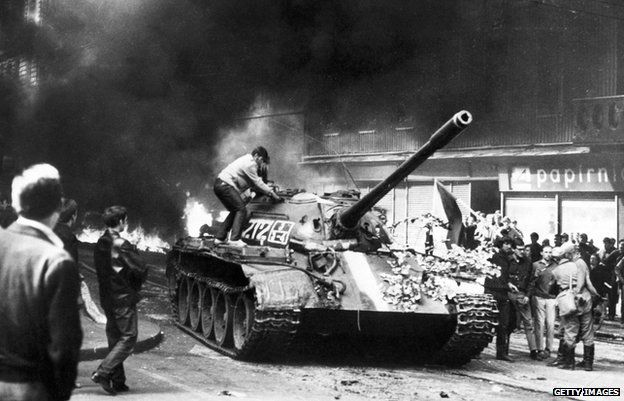By Kyle Orton (@KyleWOrton) on 10 February 2024

By Kyle Orton (@KyleWOrton) on 6 August 2023

The head of the Soviet NKVD, Nikolai Yezhov, issued Prikaz (Order) Number 00447 on 30 July 1937, a secret instruction soon signed-off by Joseph Stalin, which vastly expanded the scope and scale of the Great Terror within the Soviet Union. The 2008 book, The Road to Terror: Stalin and the Self-Destruction of the Bolsheviks, 1932-1939, by J. Arch Getty and Oleg V. Naumov, as translated by Benjamin Sher, contains nearly the full text of the order (pp. 473-80), which is reproduced below.
By Kyle Orton (@KyleWOrton) on 21 August 2022

It was on this day in 1968, fifty-four years ago, that the Soviet Union invaded Czechoslovakia, one of its colonies in the “Warsaw Pact”, which had embarked on a program of liberalising reforms. The Czech leadership did not intend to depart from the socialist path, merely to soften its edges—and ran into the brute fact that this was not possible. Continue reading
By Kyle Orton (@KyleWOrton) on 8 October 2021

Cárcel Modelo, 1937 || MINISTERIO DE CULTURA. ESPAÑA
A fire was started at the Cárcel Modelo (Model Jail) in Madrid on 22 August 1936 by “common” criminals displeased with the pace of releases promised by the Republican government. The Republicans convinced themselves that the Carcel Modelo fire was a “fascist” uprising, brought about by conspiracy with General Franco’s forces outside the prison walls, who had initiated their rebellion a month earlier. The fire was used as a pretext by the Republicans to carry out a massacre of prisoners that lasted into the early hours of 23 August, in scenes reminiscent of the French Revolution’s September 1792 atrocities that signalled the onset of the Terror. There were Rightist among the victims and some military men; there were also many liberals and non-Soviet Leftists. Continue reading
By Kyle Orton (@KyleWOrton) on August 1, 2015
Charles Ruud’s and Sergei Stepanov’s Fontanka 16: The Tsar’s Secret Police traces the evolution of political policing in Russia, focusing on the Okhranka, the final incarnation of the secret police before the Russian Revolution in 1917, and along the way puts paid to a whole array of myths about the pre-Bolshevik Russian government, especially as regards the Jewish Question.
The growth of the Russian political police occurred in four major stages. The first phase lasted from the founding of the Russian State by Ivan the Terrible (1533-84) after the expulsion of the Tatars to the opening of the “Third Section” in 1826 as a reaction to the Decembrist revolt the previous year—the first time the Imperial State security services were housed at Fontanka 16 in St. Petersburg—which intended to (and succeeded in, as 1848 would demonstrate) extirpate the liberal spirit that challenged the autocracy. The third phase saw the Third Section become the Department of Police at the onset of a crackdown after the assassination of Alexander II in 1881, who had enacted broad liberal reforms on censorship and serfdom. The elite secret police force grew out of the palace guard, becoming known as the Okhranka (though this is more usually rendered in English as Okhrana). The final phase began in 1906, after the 1905 revolution, when the Okhranka worked to stop a liberal-radical coalition building. Continue reading